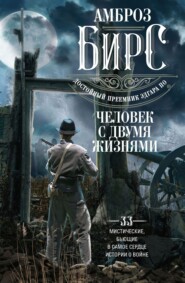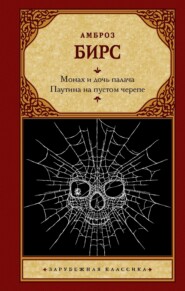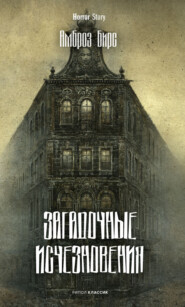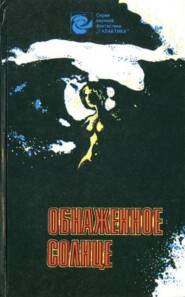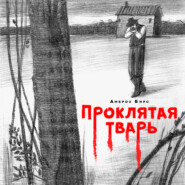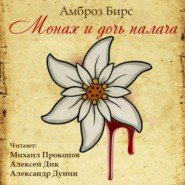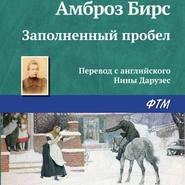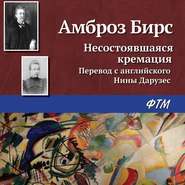По всем вопросам обращайтесь на: info@litportal.ru
(©) 2003-2024.
✖
The Monk and the Hangman's Daughter
Настройки чтения
Размер шрифта
Высота строк
Поля
‘Yet you came here to protect his corpse from the fowls?’
‘Yes.’
‘Why do you do that service to one whom you did not know?’
‘I always do so.’
‘How – !’
‘Always when any one is hanged here I come and frighten away the birds and make them find other food. See – there is another vulture!’
She uttered a wild, high scream, threw her arms above her head, and ran across the meadow so that I thought her mad. The big bird flew away, and the maiden came quietly back to me, and, pressing her sunburnt hands upon her breast, sighed deeply, as from fatigue. With as much mildness as I could put into my voice, I asked her:
‘What is your name?’
‘Benedicta.’
‘And who are your parents?’
‘My mother is dead.’
‘But your father – where is he?’
She was silent. Then I pressed her to tell me where she lived, for I wanted to take the poor child home and admonish her father to have better care of his daughter and not let her stray into such dreadful places again.
‘Where do you live, Benedicta? I pray you tell me.’
‘Here.’
‘What! here? Ah, my child, here is only the gallows.’
She pointed toward the pines. Following the direction of her finger, I saw among the trees a wretched hut which looked like a habitation more fit for animals than human beings. Then I knew better than she could have told me whose child she was.
When I returned to my companions and they asked me who the girl was, I answered: ‘The hangman’s daughter.’
3
Having commended the soul of the dead man to the intercession of the Blessed Virgin and the Holy Saints, we left the accursed spot, but as we withdrew I looked back at the lovely child of the hangman. She stood where I had left her, looking after us. Her fair white brow was still crowned with the wreath of primroses, which gave an added charm to her wonderful beauty of feature and expression, and her large, dark eyes shone like the stars of a winter midnight. My companions, to whom the hangman’s daughter was a most unchristian object, reproved me for the interest that I manifested in her; but it made me sad to think this sweet and beautiful child was shunned and despised through no fault of her own. Why should she be made to suffer blame because of her father’s dreadful calling? And was it not the purest Christian charity which prompted this innocent maiden to keep the vultures from the body of a fellow-creature whom in life she had not even known and who had been adjudged unworthy to live? It seemed to me a more kindly act than that of any professed Christian who bestows money upon the poor. Expressing these feelings to my companions, I found, to my sorrow, that they did not share them; on the contrary, I was called a dreamer and a fool who wished to overthrow the ancient and wholesome customs of the world. Everyone, they said, was bound to execrate the class to which the hangman and his family belonged, for all who associated with such persons would surely be contaminated. I had, however, the temerity to remain steadfast in my conviction, and with due humility questioned the justice of treating such persons as criminals because they were a part of the law’s machinery by which criminals were punished. Because in the church the hangman and his family had a dark corner specially set apart for them, that could not absolve us from our duty as servants of the Lord to preach the gospel of justice and mercy and give an example of Christian love and charity. But my brothers grew very angry with me, and the wilderness rang with their loud vociferations, so that I began to feel as if I were very wicked, although unable to perceive my error. I could do nothing but hope that Heaven would be more merciful to us all than we are to one another. In thinking of the maiden it gave me comfort to know that her name was Benedicta. Perhaps her parents had so named her as a means of blessing to one whom no one else would ever bless.
But I must relate what a wonderful country it was into which we were now arrived. Were we not assured that all the world is the Lord’s, for He made it, we might be tempted to think such a wild region the kingdom of the Evil One.
Far down below our path the river roared and foamed between great cliffs, the grey points of which seemed to pierce the very sky. On our left, as we gradually rose out of this chasm, was a black forest of pines, frightful to see, and in front of us a most formidable peak. This mountain, despite its terrors, had a comical appearance, for it was white and pointed like a fool’s cap, and looked as if some one had put a flour-sack on the knave’s head. After all, it was nothing but snow. Snow in the middle of the glorious month of May! – surely the works of God are wonderful and almost past belief! The thought came to me that if this old mountain should shake his head the whole region would be full of flying snow.
We were not a little surprised to find that in various places along our road the forest had been cleared away for a space large enough to build a hut and plant a garden. Some of these rude dwellings stood where one would have thought that only eagles would have been bold enough to build; but there is no place, it seems, free from the intrusion of Man, who stretches out his hand for everything, even that which is in the air. When at last we arrived at our destination and beheld the temple and the house erected in this wilderness to the name and glory of our beloved Saint, our hearts were thrilled with pious emotions. Upon the surface of a pine-covered rock was a cluster of huts and houses, the monastery in the midst, like a shepherd surrounded by his flock. The church and monastery were of hewn stone, of noble architecture, spacious and comfortable.
May the good God bless our entrance into this holy place.
4
I have now been in this wilderness for a few weeks, but the Lord, too, is here, as everywhere. My health is good, and this house of our beloved Saint is a stronghold of the Faith, a house of peace, an asylum for those who flee from the wrath of the Evil One, a rest for all who bear the burden of sorrow. Of myself, however, I cannot say so much. I am young, and although my mind is at peace, I have so little experience of the world and its ways that I feel myself peculiarly liable to error and accessible to sin. The course of my life is like a rivulet which draws its silver thread smoothly and silently through friendly fields and flowery meadows, yet knows that when the storms come and the rains fall it may become a raging torrent, defiled with earth and whirling away to the sea the wreckage attesting the madness of its passion and its power.
Not sorrow nor despair drew me away from the world into the sacred retreat of the Church, but a sincere desire to serve the Lord. My only wish is to belong to my beloved Saint, to obey the blessed mandates of the Church, and, as a servant of God, to be charitable to all mankind, whom I dearly love. The Church is, in truth, my beloved mother, for, my parents having died in my infancy I, too, might have perished without care had she not taken pity on me, fed and clothed me and reared me as her own child. And, oh, what happiness there will be for me, poor monk, when I am ordained and receive holy orders as a priest of the Most High God! Always I think and dream of it and try to prepare my soul for that high and sacred gift. I know I can never be worthy of this great happiness, but I do hope to be an honest and sincere priest, serving God and Man according to the light that is given from above. I often pray Heaven to put me to the test of temptation, that I may pass through the fire unscathed and purified in mind and soul. As it is, I feel the sovereign peace which, in this solitude, lulls my spirit to sleep, and all life’s temptations and trials seem far away, like perils of the sea to one who can but faintly hear the distant thunder of the waves upon the beach.
5
Our Superior, Father Andreas, is a mild and pious gentleman. Our brothers live in peace and harmony. They are not idle, neither are they worldly nor arrogant. They are temperate, not indulging too much in the pleasures of the table – a praiseworthy moderation, for all this region, far and wide – the hills and the valleys, the river and forest, with all that they contain – belongs to the monastery. The woods are full of all kinds of game, of which the choicest is brought to our table, and we relish it exceedingly. In our monastery a drink is prepared from malt and barley – a strong, bitter drink, refreshing after fatigue, but not, to my taste, very good.
The most remarkable thing in this part of the country is the salt-mining. I am told that the mountains are full of salt – how wonderful are the works of the Lord! In pursuit of this mineral Man has penetrated deep into the bowels of the earth by means of shafts and tunnels, and brings forth the bitter marrow of the hills into the light of the sun. The salt I have myself seen in red, brown and yellow crystals. The works give employment to our peasants and their sons, with a few foreign labourers, all under the command of an overseer, who is known as the Saltmaster. He is a stern man, exercising great power, but our Superior and the brothers speak little good of him – not from any unchristian spirit, but because his actions are evil. The Saltmaster has an only son. His name is Rochus, a handsome but wild and wicked youth.
6
The people hereabout are a proud, stubborn race. I am told that in an old chronicle they are described as descendants of the Romans, who in their day drove many tunnels into these mountains to get out the precious salt; and some of these tunnels are still in existence. From the window of my cell I can see these giant hills and the black forests which at sunset burn like great firebrands along the crests against the sky.
The forefathers of these people (after the Romans) were, I am told, more stubborn still than they are, and continued in idolatry after all the neighbouring peoples had accepted the cross of the Lord our Saviour. Now, however, they bow their stiff necks to the sacred symbol and soften their hearts to receive the living truth. Powerful as they are in body, in spirit they are humble and obedient to the Word. Nowhere else did the people kiss my hand so fervently as here, although I am not a priest – an evidence of the power and victory of our glorious faith.
Physically they are strong and exceedingly handsome in face and figure, especially the young men; the elder men, too, walk as erect and proud as kings. The women have long golden hair, which they braid and twist about their heads very beautifully, and they love to adorn themselves with jewels. Some have eyes whose dark brilliancy rivals the lustre of the rubies and garnets they wear about their white necks. I am told that the young men fight for the young women as stags for does. Ah, what wicked passions exist in the hearts of men! But since I know nothing of these things, nor shall ever feel such unholy emotions, I must not judge and condemn.
Lord, what a blessing is the peace with which Thou hast filled the spirits of those who are Thine own! Behold, there is no turmoil in my breast; all is calm there as in the soul of a babe which calls ‘Abba,’ dear Father. And so may it ever be.
7
I have again seen the hangman’s beautiful daughter. As the bells were chiming for mass I saw her in front of the monastery church. I had just come from the bedside of a sick man, and as my thoughts were gloomy the sight of her face was pleasant, and I should have liked to greet her, but her eyes were cast down: she did not notice me. The square in front of the church was filled with people, the men and youths on one side, on the other the women and maidens all clad in their high hats and adorned with their gold chains. They stood close together, but when the poor child approached all stepped aside, whispering and looking askance at her as if she were an accursed leper and they feared infection.
Compassion filled my breast, compelling me to follow the maiden, and, overtaking her, I said aloud:
‘God greet you, Benedicta.’
She shrank away as if frightened, then, looking up, recognised me, seemed astonished, blushed again and again and finally hung her head in silence.
‘Do you fear to speak to me?’ I asked.
But she made no reply. Again I spoke to her: ‘Do good, obey the Lord and fear no one: then shall you be saved.’
At this she drew a long sigh, and replied in a low voice, hardly more than a whisper: ‘I thank you, my lord.’
‘I am not a lord, Benedicta,’ I said, ‘but a poor servant of God, who is a gracious and kind Father to all His children, however lowly their estate. Pray to Him when your heart is heavy, and He will be near you.’
While I spoke she lifted her head and looked at me like a sad child that is being comforted by its mother. And, still speaking to her out of the great compassion in my heart, I led her into the church before all the people.
But do thou, O holy Franciscus, pardon the sin that I committed during that high sacrament! For while Father Andreas was reciting the solemn words of the mass my eyes constantly wandered to the spot where the poor child knelt in a dark corner set apart for her and her father, forsaken and alone. She seemed to pray with holy zeal, and surely thou didst grace her with a ray of thy favour, for it was through thy love of mankind that thou didst become a great saint, and didst bring before the Throne of Grace thy large heart, bleeding for the sins of all the world. Then shall not I, the humblest of thy followers, have enough of thy spirit to pity this poor outcast who suffers for no sin of her own? Nay, I feel for her a peculiar tenderness, which I cannot help accepting as a sign from Heaven that I am charged with a special mandate to watch over her, to protect her, and finally to save her soul.
8
Our Superior has sent for me and rebuked me. He told me I had caused great ill-feeling among the brothers and the people, and asked what devil had me in possession that I should walk into church with the daughter of the public hangman.
What could I say but that I pitied the poor maiden and could not do otherwise than as I did?
‘Why did you pity her?’ he asked.






